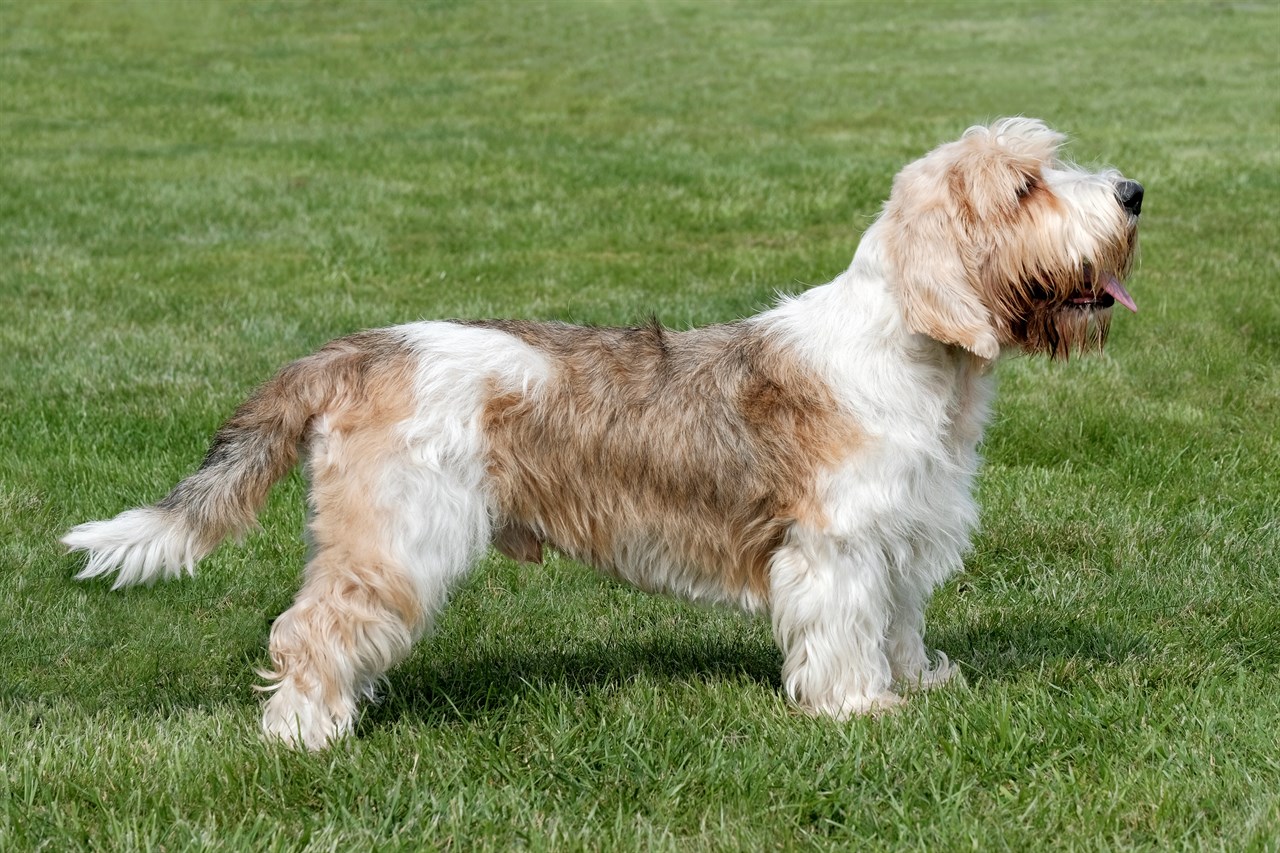Common Health Issues of the Petit Basset Griffon Vendéen

Like all dog breeds, the Petit Basset Griffon Vendéen (PBGV) can be susceptible to certain health issues. While not all PBGVs will experience these problems, it's essential for potential owners to be aware of the breed's common health concerns. Regular veterinary cheque-ups and responsible breeding practises can help mitigate these issues. Here are some of the health problems associated with PBGVs.
Hip Dysplasia
Hip dysplasia is a genetic condition where the hip joint doesn't develop properly, leading to arthritis and discomfort. Regular screenings and responsible breeding practises can help reduce the risk of hip dysplasia in PBGVs.
Patellar Luxation
Patellar luxation, also known as "slipped kneecap," occurs when the kneecap dislocates from its normal position. This condition can range from mild to severe and may require surgical correction in severe cases.
Eye Issues
PBGVs can be prone to eye problems, including cataracts, progressive retinal atrophy (PRA), and glaucoma. Regular eye examinations by a veterinary ophthalmologist are recommended to detect and manage these conditions.
Ear Infections
PBGVs have long, floppy ears that can trap moisture and debris, making them susceptible to ear infections. Regular ear cleaning and inspection can help prevent these issues.
Intervertebral Disc Disease (IVDD)
IVDD is a spinal condition that can affect PBGVs. It occurs when the discs between the vertebrae degenerate and can lead to pain, paralysis, or weakness. Prompt veterinary attention is crucial if IVDD is suspected.
Hypothyroidism
This is a hormonal disorder that affects the thyroid gland. Symptoms can include weight gain, lethargy, and skin issues. Hypothyroidism can usually be managed with medication.
Epilepsy
Some PBGVs may develop epilepsy, a neurological condition characterised by recurrent seizures. Medication can help control seizures in affected dogs.
Bloat (Gastric Dilatation-Volvulus)
Although not breed-specific, PBGVs can be susceptible to bloat, a life-threatening condition where the stomach twists, trapping gas and preventing blood flow. Rapid veterinary intervention is essential if bloat is suspected.
Allergies
PBGVs can develop allergies to various environmental factors, including pollen, dust, and certain foods. Allergy management typically involves identifying and avoiding allergens or using medication to control symptoms.
Respiratory Issues
While not as pronounced as in some brachycephalic breeds (breeds with flat faces), PBGVs may be prone to some respiratory issues due to their facial structure. Owners should be cautious about overexerting them in hot or humid conditions.
Do Griffon Dogs Have Health Problems?
Griffon dogs, including the Petit Basset Griffon Vendéen, can experience health problems, as is common with many breeds. Responsible breeding practises that include health screenings and regular veterinary care can help reduce the risk and severity of these issues.
What Issues Do Griffon Dogs Have?
Health issues in Griffon dogs may include hip dysplasia, patellar luxation, eye problems, ear infections, and skin allergies, among others. Each Griffon breed may have its specific health concerns, and it's crucial for owners to be aware of potential issues and provide proper care.
What Are the Health Problems with Petit Basset Griffon Vendéens?
Common health problems with Petit Basset Griffon Vendéens include hip dysplasia, patellar luxation, eye issues, ear infections, intervertebral disc disease (IVDD), hypothyroidism, epilepsy, bloat, allergies, and respiratory issues. Regular veterinary cheque-ups and early intervention can help manage these conditions.
Do Griffon Dogs Have Breathing Problems?
While some Griffon breeds, such as the Brussels Griffon, may be more prone to breathing problems due to their facial structure (brachycephalic), the Petit Basset Griffon Vendéen is not a brachycephalic breed. However, they may still experience some respiratory issues, particularly when overexerted in hot or humid conditions. It's essential to provide them with adequate rest and avoid strenuous exercise in extreme weather to minimise the risk of respiratory distress.
Petit Basset Griffon Vendeen puppies for sale
- Find Petit Basset Griffon Vendeen puppies for sale in ACT
- Find Petit Basset Griffon Vendeen puppies for sale in NSW
- Find Petit Basset Griffon Vendeen puppies for sale in NT
- Find Petit Basset Griffon Vendeen puppies for sale in QLD
- Find Petit Basset Griffon Vendeen puppies for sale in SA
- Find Petit Basset Griffon Vendeen puppies for sale in TAS
- Find Petit Basset Griffon Vendeen puppies for sale in VIC
- Find Petit Basset Griffon Vendeen puppies for sale in WA